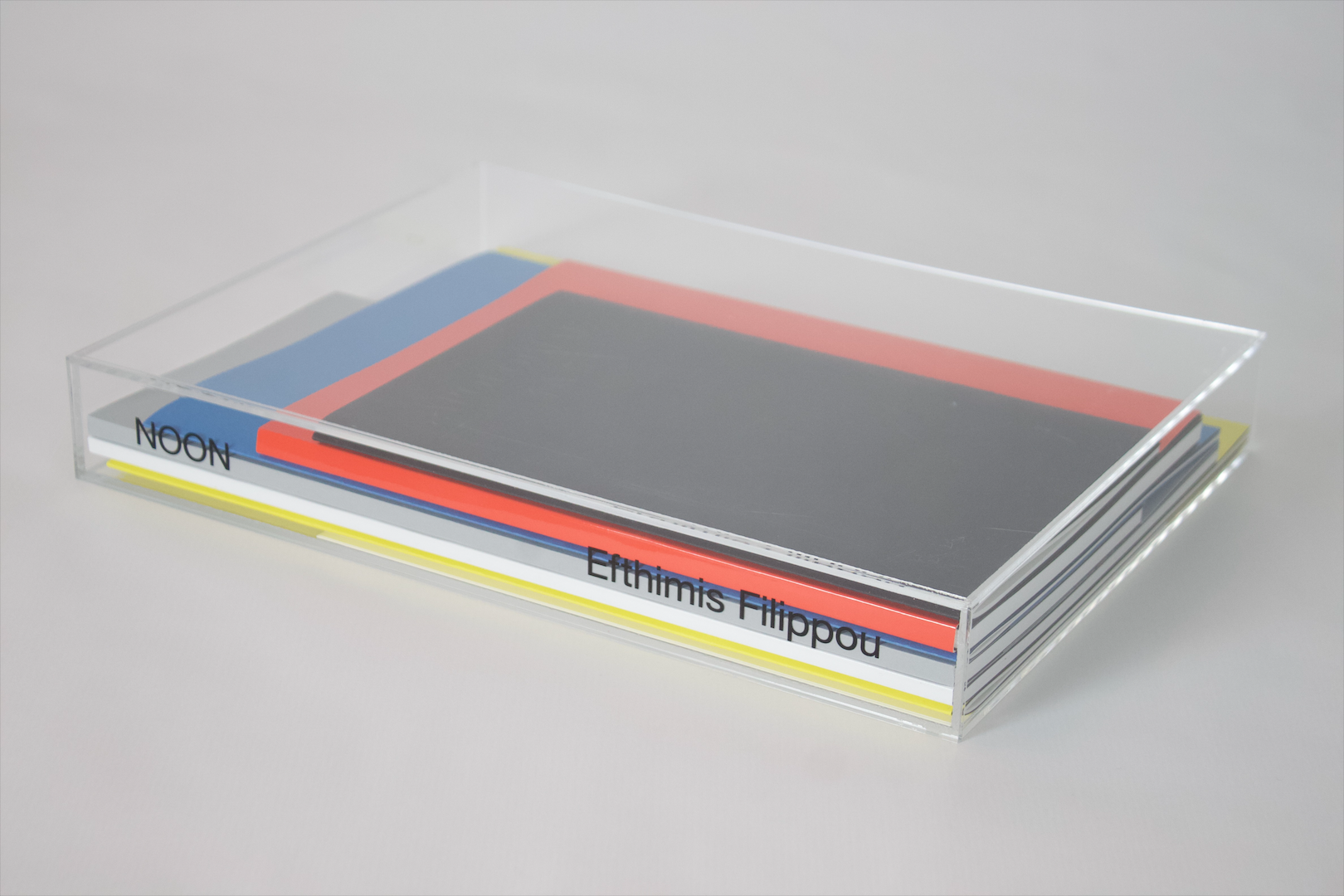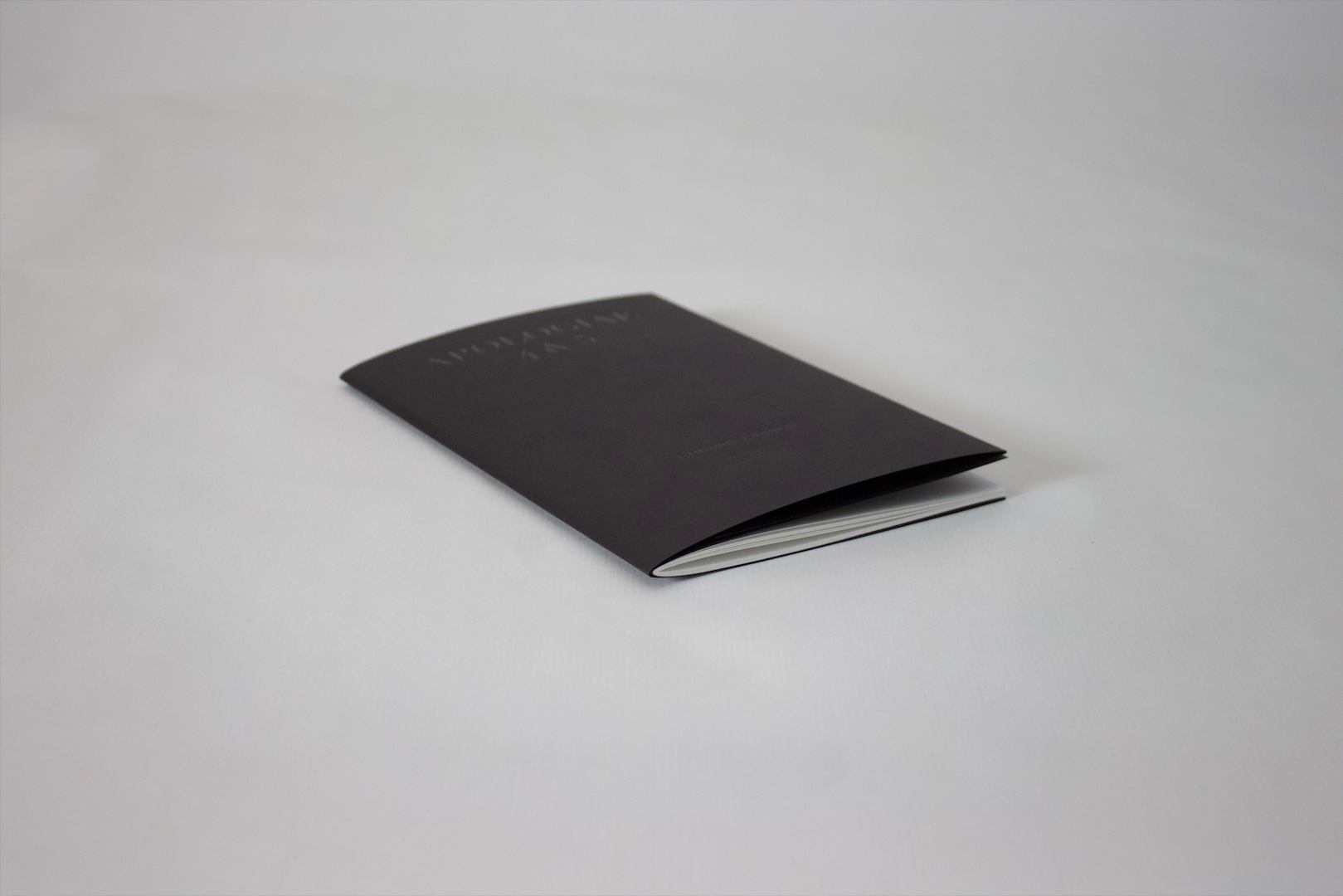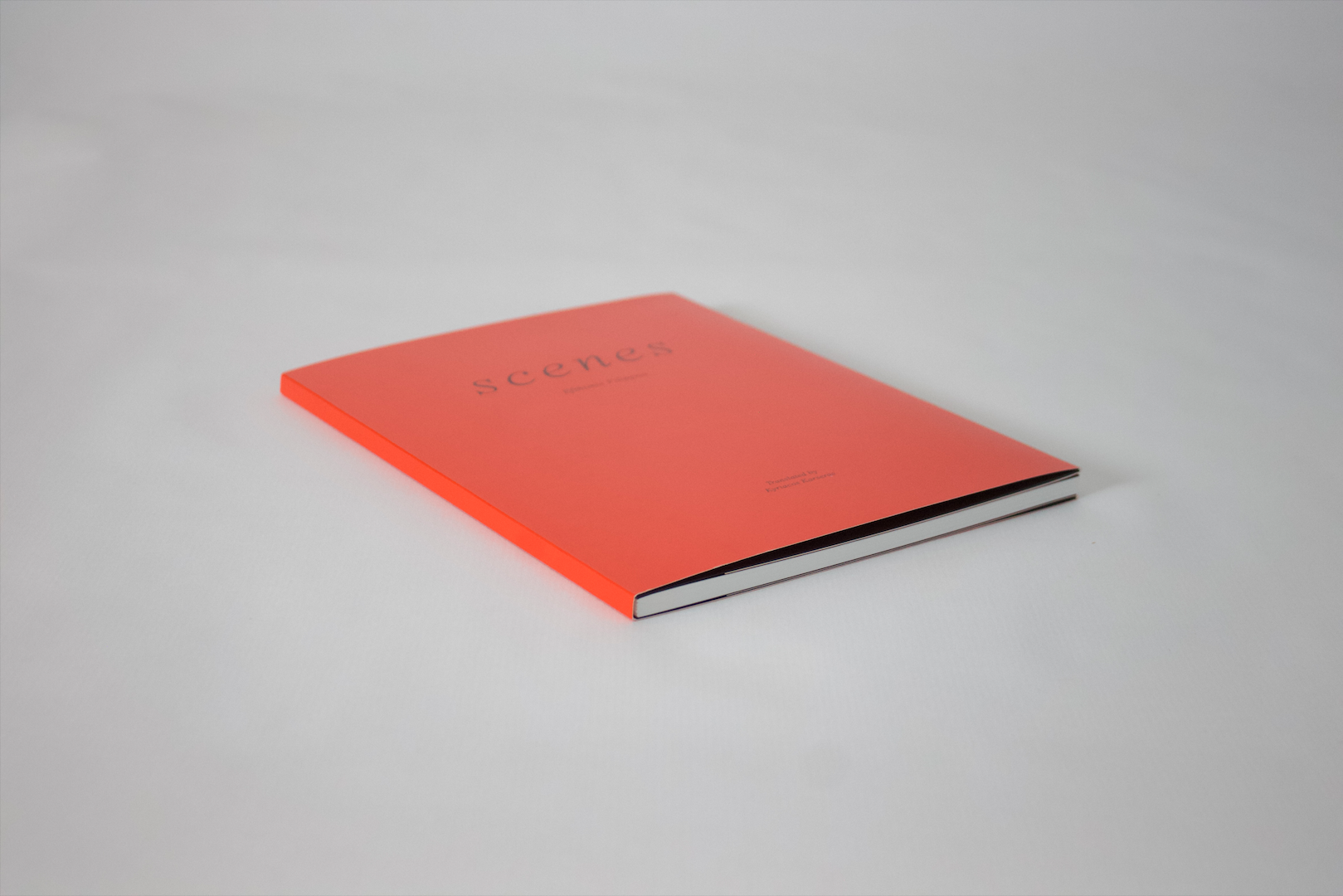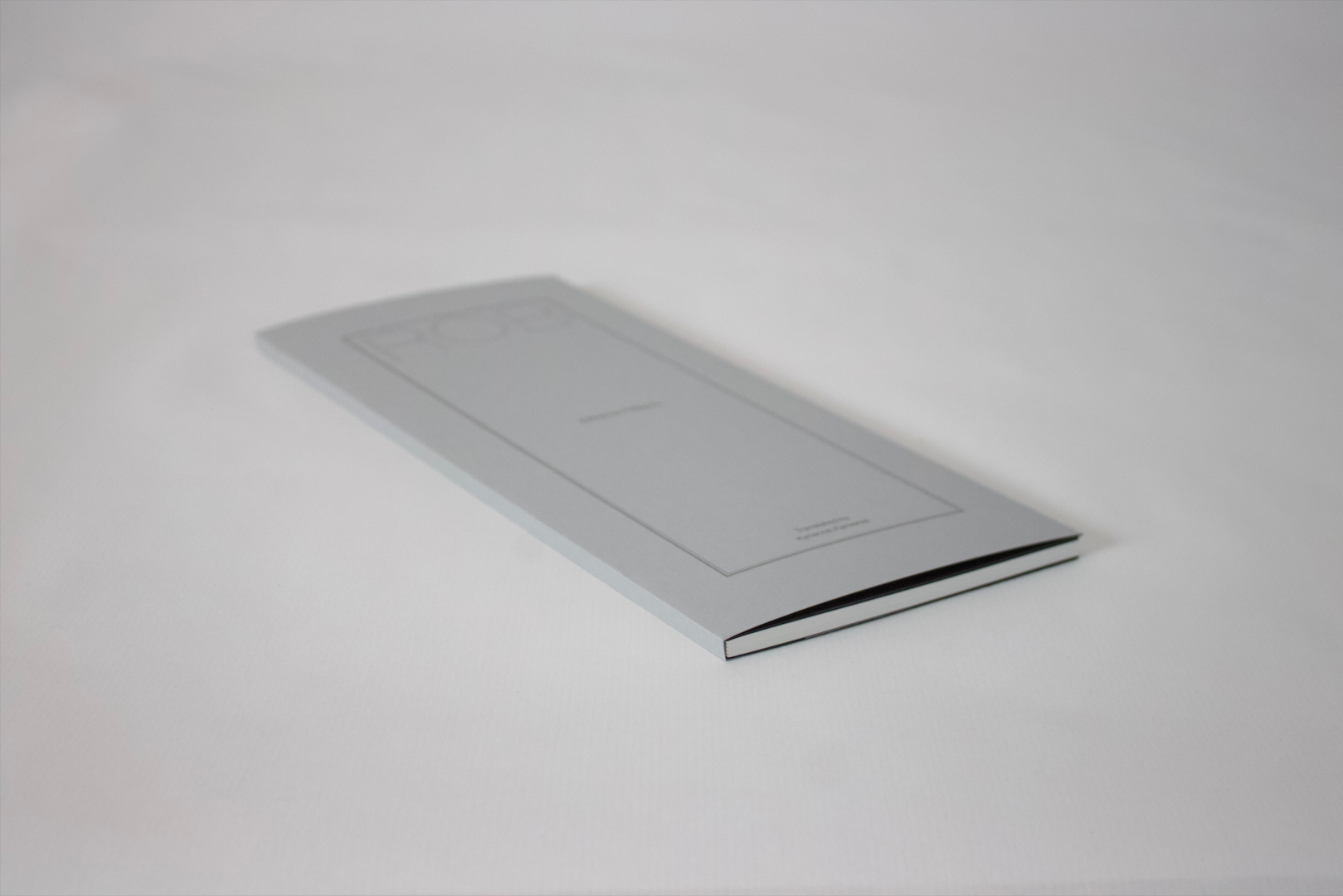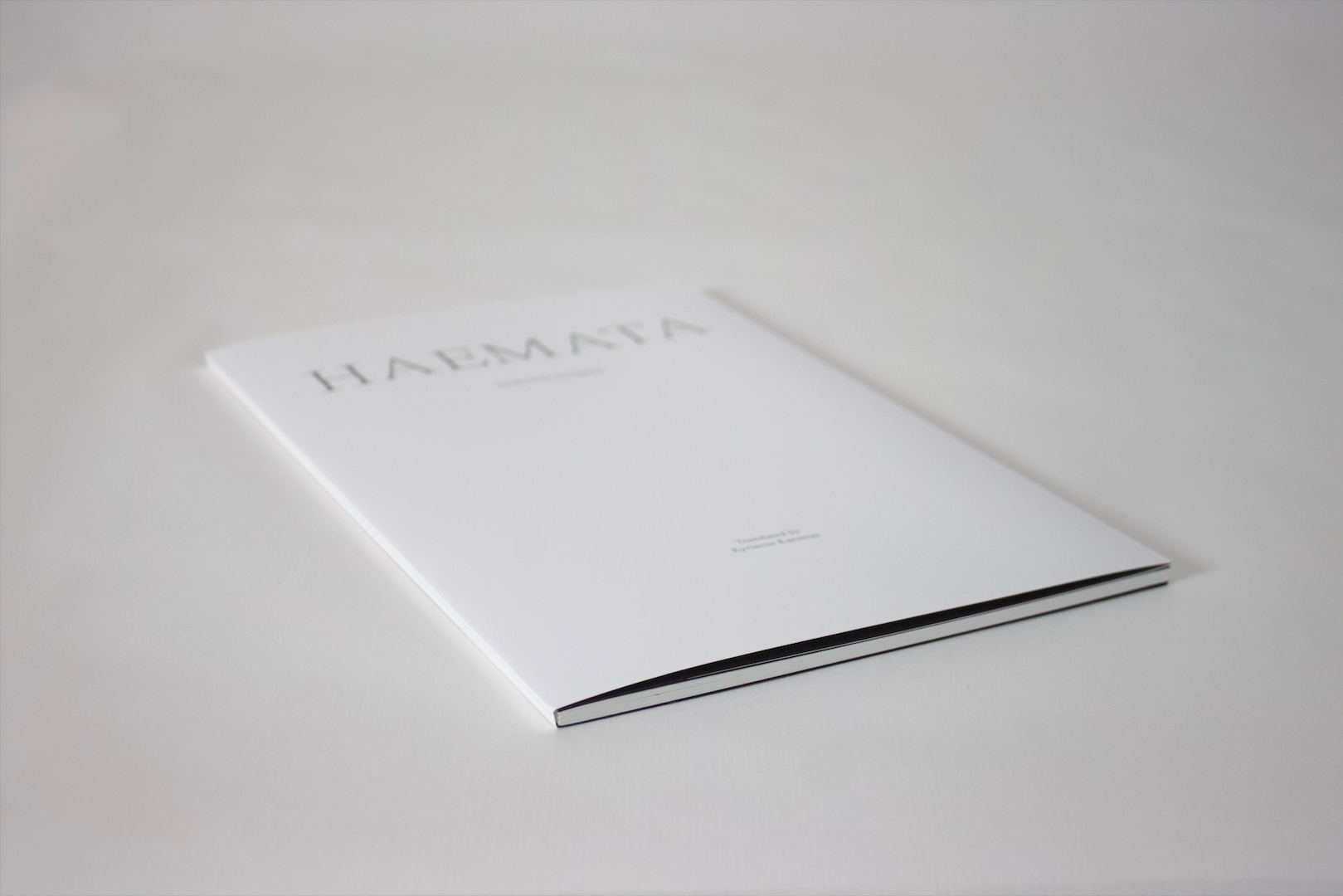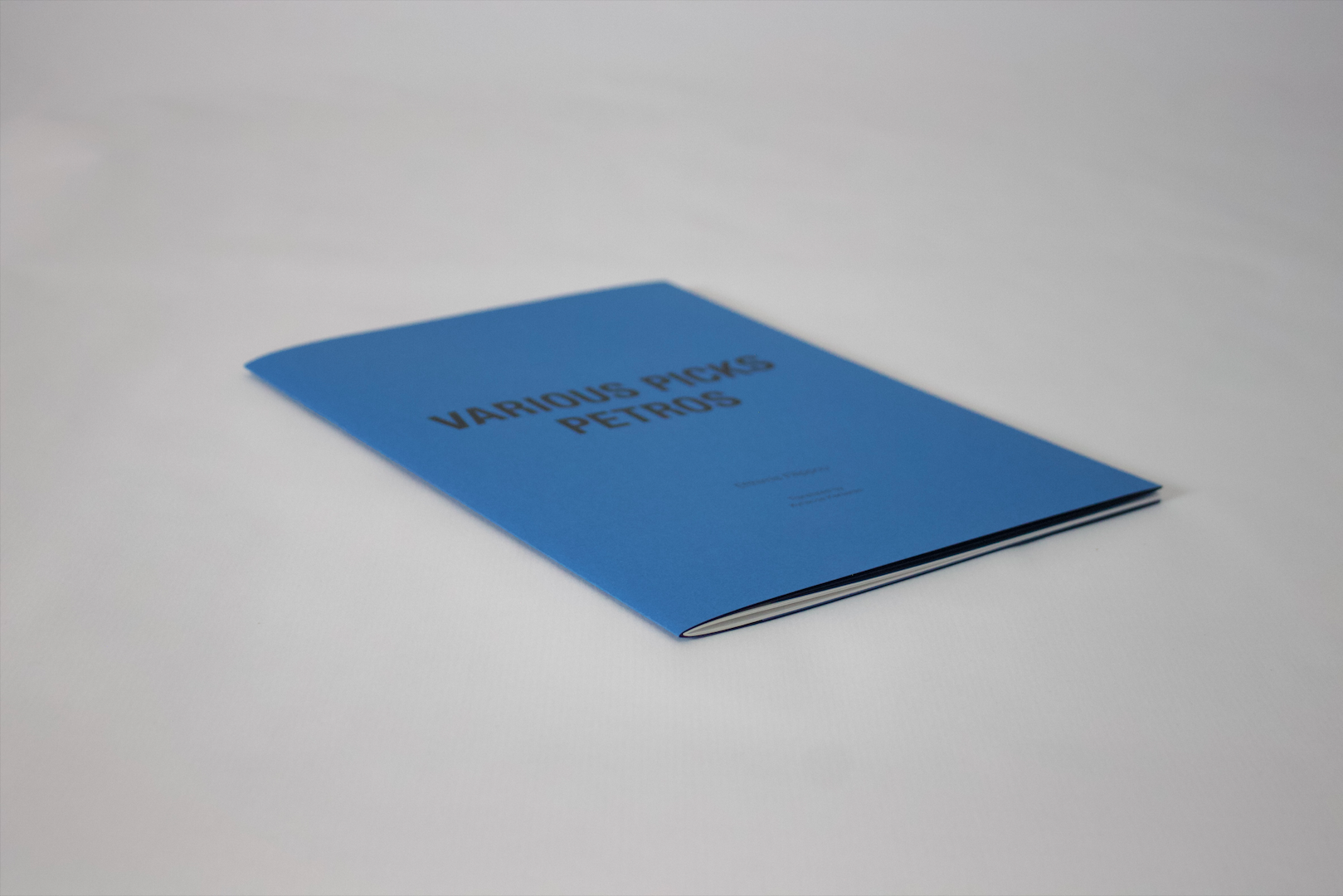
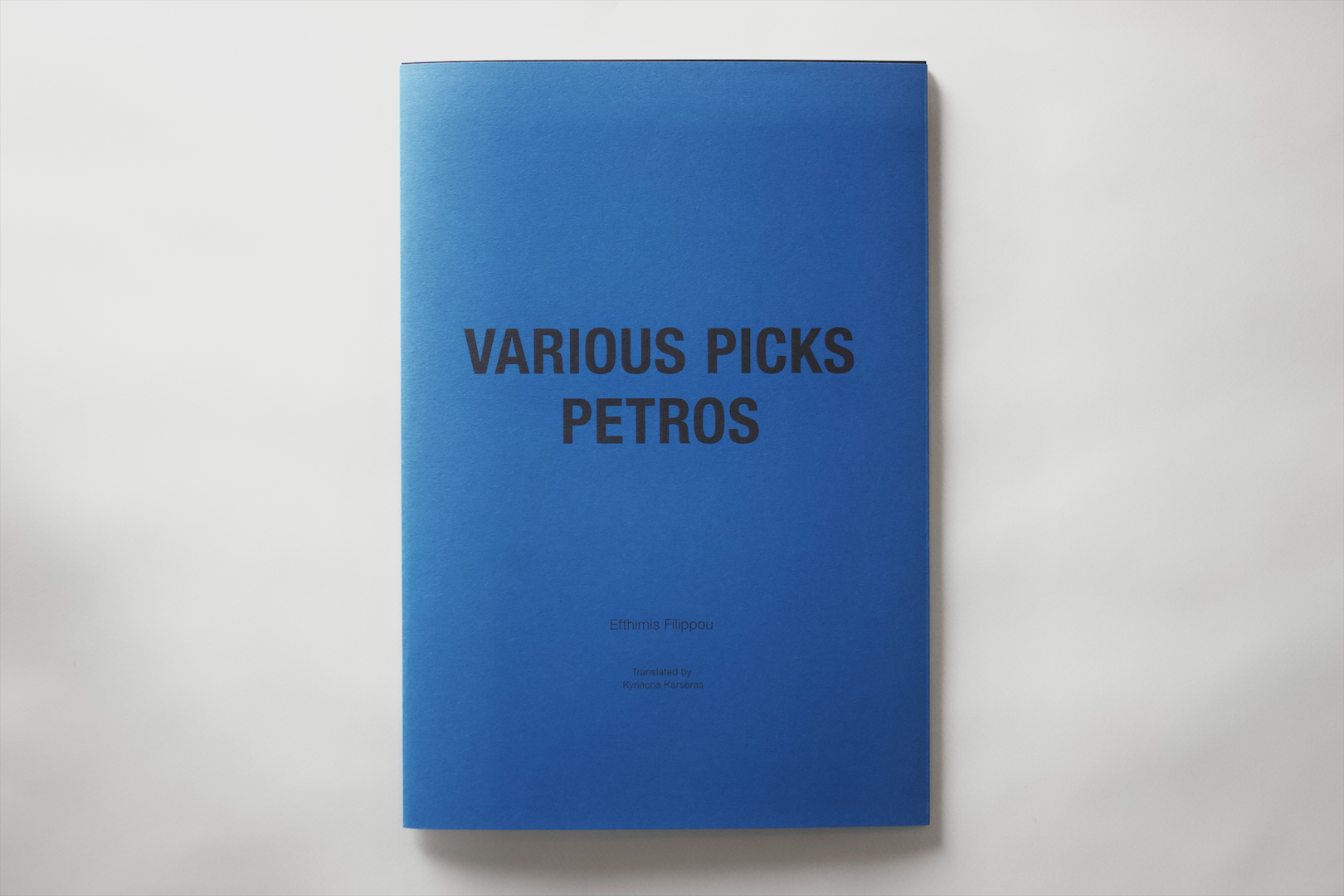
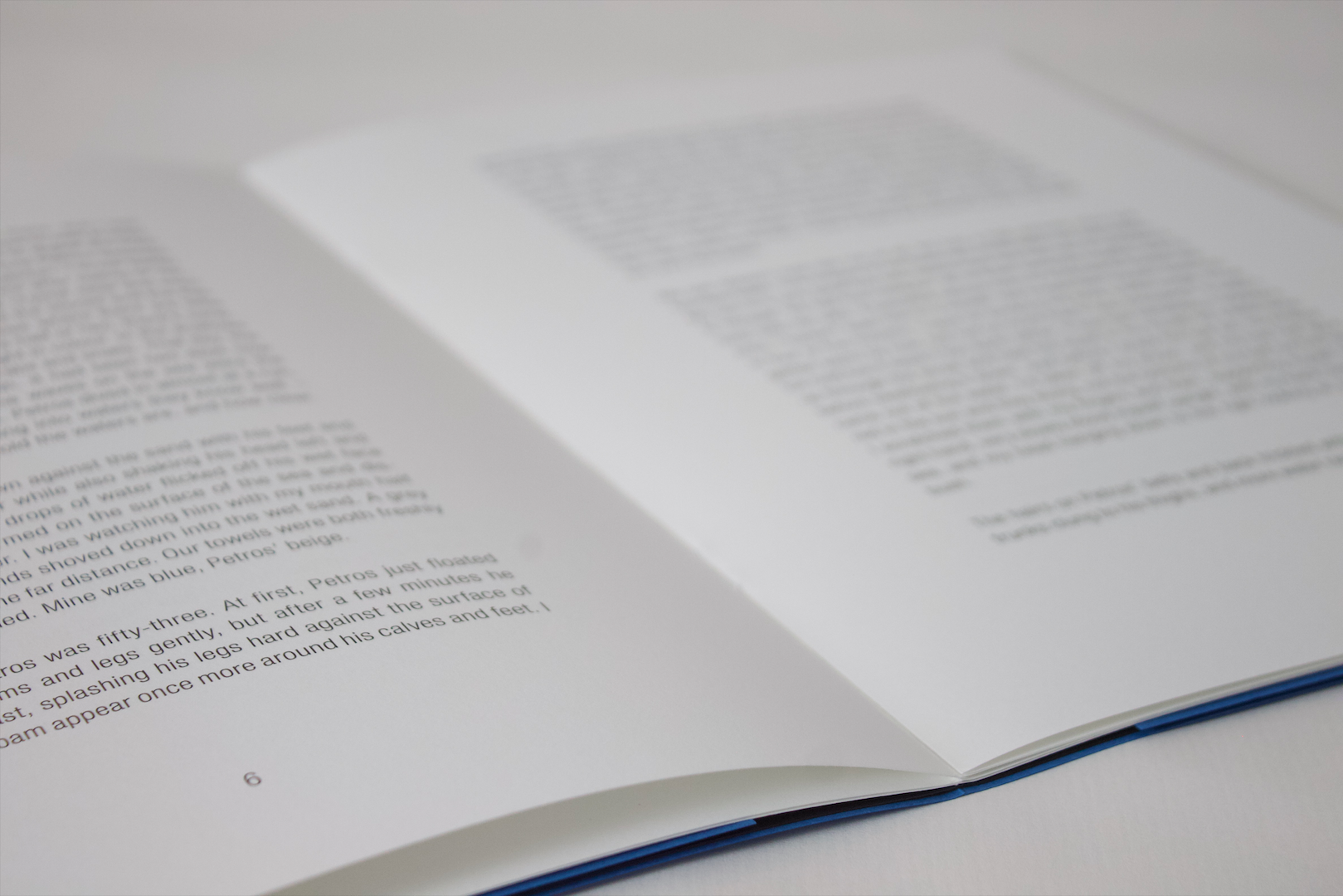
Various Picks Petros
Fiction by Efthimis Filippou
Translated by Kyriacos Karseras
Book Three of the NOON collection
First English-language edition
-
It’s a broad street, the one that leads from the local church down to the beach. It’s a broad street. And along that street, lining it left and right, are pavements and planted oleander bushes. The large concrete house set on the best spot along this street that leads from the local church, that’s where I live. That house – my house – is well insulated against both sound and the heat. It was built twenty years ago, and no-one can say that it’s an ugly house at first sight, but then again no-one can say that it’s beautiful. It has two storeys, with verandas at the front and back. There’s a lawn in the front garden and a tree that’s not too big, and there’s space at the back where someone could plant flowers and vegetables, if they wanted. There’s a dog tied up back there for nine years now that should have gone stark raving mad by now, but hasn’t. That’s my dog. He’s quiet and sweet and eats his food every day quite happily, wagging his little black tail when he drinks water. His collar is new, the old one got worn so I bought him a new one that wasn’t black like the old one, but brown. The sea is only five minutes away from my house on foot. I’m fifty years old, and I work as a maths teacher in the local sixth form college. Three days ago, I killed my brother Petros, I strangled him. Livestock farming was Petros’ main line of work. He’d wake up early in the morning and grow sleepy early in the evening.
Petros’ hands were whiter than white, as if dipped in thick goat’s milk, and his eyes were blacker than black, as if burned out with lighters. Petros’ cheeks were always red, some vessels had probably burst, and even when he was all grown up and his face would go dark from the sun and the heat in the fields and mountains, even then that colour was indelibly there, that red, in among and beside his beard, under his blacker than black eyes. The day before Petros died, he made me a ninety-minute mixtape, a cassette with some songs. I live on the second floor of the house, and Petros lived on the first. On the day of the murder, after we’d eaten two kilos or so of meat, we went for a swim. It was around noon and really hot, but the sea’s only five minutes away from the house. We walked, all sweaty, with our towels round our necks. We didn’t say a single word on our way there, just looked at our bodies in the shop windows we passed.
When we reached the beach, we were the only ones there, and I told Petros to dive in and swim. He refused, saying he’d have to wait at least two hours before going for a swim to give him time to digest the fried meat he’d just eaten. I told him that wasn’t true. And Petros believed me because he figured that since I’m a mathematician, I know better than him whether someone can swim a short time after eating or not, and so he plunged into the water. The sea was crystal clear and even in the deep, you could easily see the sand and the stones and the fish at the bottom. The sea was one of those seas where there are little stones as you enter, but after a metre-and-a-half or two, there’s sand, lovely it is, and beige, not dark sand, it’s light in colour. In the shallows there are little translucent prawns, and crabs and snails. That day, the surface of the water was almost smooth. It had been two days now since the wind had died down, and the waves on the sea were the smallest waves they could possibly be. Petros dived in almost at a run, with the confidence of someone diving into waters they know well – someone, that is, who knows how cold the waters are, and how clear.
He dived under, then pushed down against the sand with his feet and shot waist high out of the water while also shaking his head left and right many times over, so that drops of water flicked off his wet face and wet hair. A little foam formed on the surface of the sea and disappeared a few seconds later. I was watching him with my mouth half open, and with both my hands shoved down into the wet sand. A grey warship could be seen in the far distance. Our towels were both freshly laundered, clean and ironed. Mine was blue, Petros’ beige.
I’m fifty years old. Petros was fifty-three. At first, Petros just floated about, moving his arms and legs gently, but after a few minutes he started swimming fast, splashing his legs hard against the surface of the water, making foam appear once more around his calves and feet.
[...]
Fiction by Efthimis Filippou
Translated by Kyriacos Karseras
Book Three of the NOON collection
First English-language edition
-
It’s a broad street, the one that leads from the local church down to the beach. It’s a broad street. And along that street, lining it left and right, are pavements and planted oleander bushes. The large concrete house set on the best spot along this street that leads from the local church, that’s where I live. That house – my house – is well insulated against both sound and the heat. It was built twenty years ago, and no-one can say that it’s an ugly house at first sight, but then again no-one can say that it’s beautiful. It has two storeys, with verandas at the front and back. There’s a lawn in the front garden and a tree that’s not too big, and there’s space at the back where someone could plant flowers and vegetables, if they wanted. There’s a dog tied up back there for nine years now that should have gone stark raving mad by now, but hasn’t. That’s my dog. He’s quiet and sweet and eats his food every day quite happily, wagging his little black tail when he drinks water. His collar is new, the old one got worn so I bought him a new one that wasn’t black like the old one, but brown. The sea is only five minutes away from my house on foot. I’m fifty years old, and I work as a maths teacher in the local sixth form college. Three days ago, I killed my brother Petros, I strangled him. Livestock farming was Petros’ main line of work. He’d wake up early in the morning and grow sleepy early in the evening.
Petros’ hands were whiter than white, as if dipped in thick goat’s milk, and his eyes were blacker than black, as if burned out with lighters. Petros’ cheeks were always red, some vessels had probably burst, and even when he was all grown up and his face would go dark from the sun and the heat in the fields and mountains, even then that colour was indelibly there, that red, in among and beside his beard, under his blacker than black eyes. The day before Petros died, he made me a ninety-minute mixtape, a cassette with some songs. I live on the second floor of the house, and Petros lived on the first. On the day of the murder, after we’d eaten two kilos or so of meat, we went for a swim. It was around noon and really hot, but the sea’s only five minutes away from the house. We walked, all sweaty, with our towels round our necks. We didn’t say a single word on our way there, just looked at our bodies in the shop windows we passed.
When we reached the beach, we were the only ones there, and I told Petros to dive in and swim. He refused, saying he’d have to wait at least two hours before going for a swim to give him time to digest the fried meat he’d just eaten. I told him that wasn’t true. And Petros believed me because he figured that since I’m a mathematician, I know better than him whether someone can swim a short time after eating or not, and so he plunged into the water. The sea was crystal clear and even in the deep, you could easily see the sand and the stones and the fish at the bottom. The sea was one of those seas where there are little stones as you enter, but after a metre-and-a-half or two, there’s sand, lovely it is, and beige, not dark sand, it’s light in colour. In the shallows there are little translucent prawns, and crabs and snails. That day, the surface of the water was almost smooth. It had been two days now since the wind had died down, and the waves on the sea were the smallest waves they could possibly be. Petros dived in almost at a run, with the confidence of someone diving into waters they know well – someone, that is, who knows how cold the waters are, and how clear.
He dived under, then pushed down against the sand with his feet and shot waist high out of the water while also shaking his head left and right many times over, so that drops of water flicked off his wet face and wet hair. A little foam formed on the surface of the sea and disappeared a few seconds later. I was watching him with my mouth half open, and with both my hands shoved down into the wet sand. A grey warship could be seen in the far distance. Our towels were both freshly laundered, clean and ironed. Mine was blue, Petros’ beige.
I’m fifty years old. Petros was fifty-three. At first, Petros just floated about, moving his arms and legs gently, but after a few minutes he started swimming fast, splashing his legs hard against the surface of the water, making foam appear once more around his calves and feet.
[...]
© 2023 De Filmfreak
